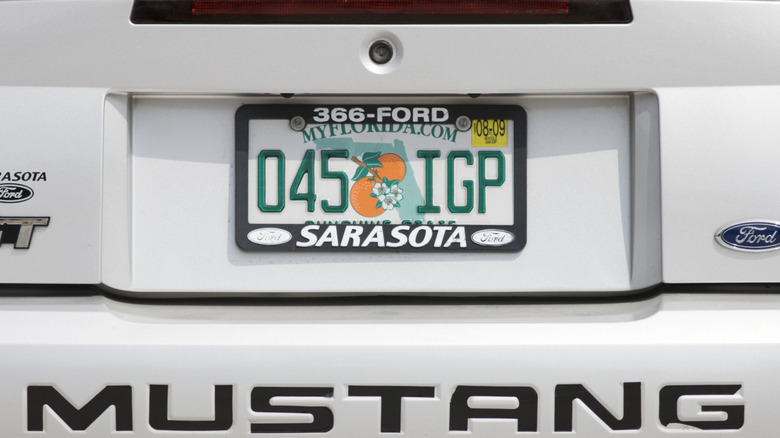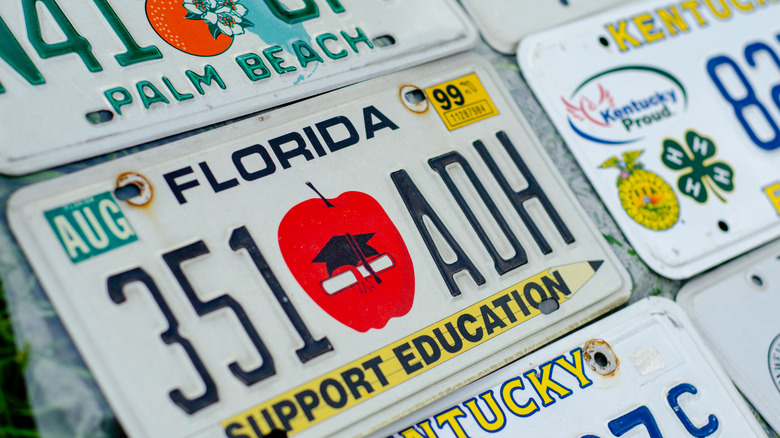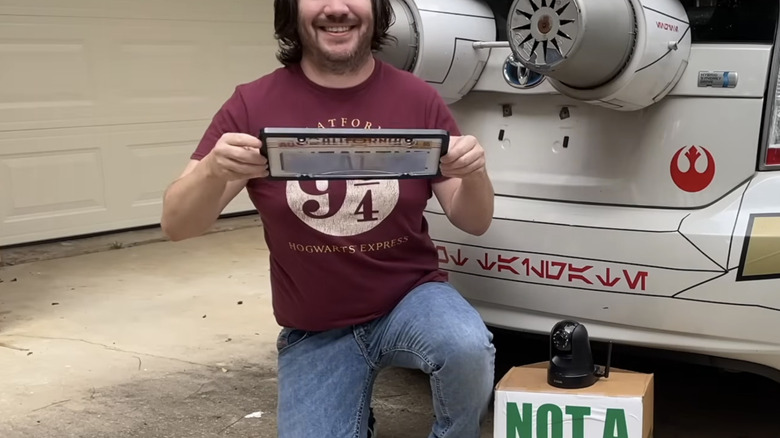Fines & Jail Time? Florida Isn't Messing Around With License Plate Frames
Most Floridians probably never paid a lot of attention to license plate frames. They are just seen as props installed for aesthetics for most drivers. And for dealers, they double as something that lets their logo travel around town as free advertisement. But this casual attitude is about to change. That's thanks to House Bill 253, which officially went into law on October 1, 2025. It basically ups the penalty for obscuring a license plate from a simple fine to a second-degree misdemeanor. So now, if the frame hides any part element on the plate – be it letters, numbers, or the registration sticker – it's better to simply get rid of it. Those letters obviously include the word "Florida" at the top or the county name at the bottom. Of course, you can still use fancy frames...just make sure that they aren't illegal.
With the law in effect, many motorists are now at risk of being pulled over. In fact, WINK News found that many drivers were unknowingly breaking the law, even with frames installed directly by car dealers. Such frames often look "official," leading people to assume they're legal. But that assumption won't cut it under the new rules, turning them into features that make any car a police magnet.
It's worth mentioning that the foundation for the new law is actually quite old. The Florida Statute 316.605 has required tags to be fully legible from 100 feet away since 1971. But legislators have now updated the consequences for violating it. Specifically, Bill 253 states that it's "increasing the penalty for knowingly altering a motor vehicle registration certificate, a license plate, a temporary license plate, a mobile home sticker, or a validation sticker or obscuring a license plate from a noncriminal traffic infraction to a second degree misdemeanor."
Could you land in jail?
You might even end up in jail for an unlawful plate frame. A second-degree misdemeanor does not count as a felony, but it's still serious enough to get violators a maximum penalty of 60 days in jail alongside a fine of up to $500. This might sound rather extreme, but the statute also includes an important legal distinction: intention.
You see, prosecutors must prove that a driver intentionally altered or covered their plate to secure a conviction. This means that an element on your plate that's faded in the sun is very different from you bolting on a "University of Miami" frame that covers the county name. In fact, the former counts as natural wear and doesn't constitute a criminal act, according to Musca Law. Real danger arises only when you knowingly interfere with visibility.
Besides jail, breaking this law could also create a permanent criminal record that could impact future employment opportunities – it is, after all, a second-degree misdemeanor. So the best option to stay safe would be a slim frame that borders the white space of the plate only.
What else is impacted?
Frames aren't the only thing that may be scrutinized more due to the new law. One section of the bill also strictly prohibits the purchase or possession of license plate obscuring devices. This includes any James Bond-style electronic shutters or mechanical flippers designed to hide numbers from cameras. The mere possession of such gadgets is now a second-degree misdemeanor. Things get worse for suppliers, since manufacturing or selling such tech constitutes a first-degree misdemeanor. But at the top of the mischief ranking lie those who are actually committing a crime: using the shutter while evading the police immediately fetches them a third-degree felony.
Finally, the bill cracks down on lighting mods. People were apparently using emergency-style lights to impersonate the police. So now, unless your ride is an ambulance, it shouldn't display red, red and white, or blue lights that are visible from the front. It's unclear if this provision applies to underglow lights, which typically are legal/illegal depending on the state you're in, so you might want to be careful with those. What's clear is that using emergency-style lights to force another driver to stop is a third-degree felony.


